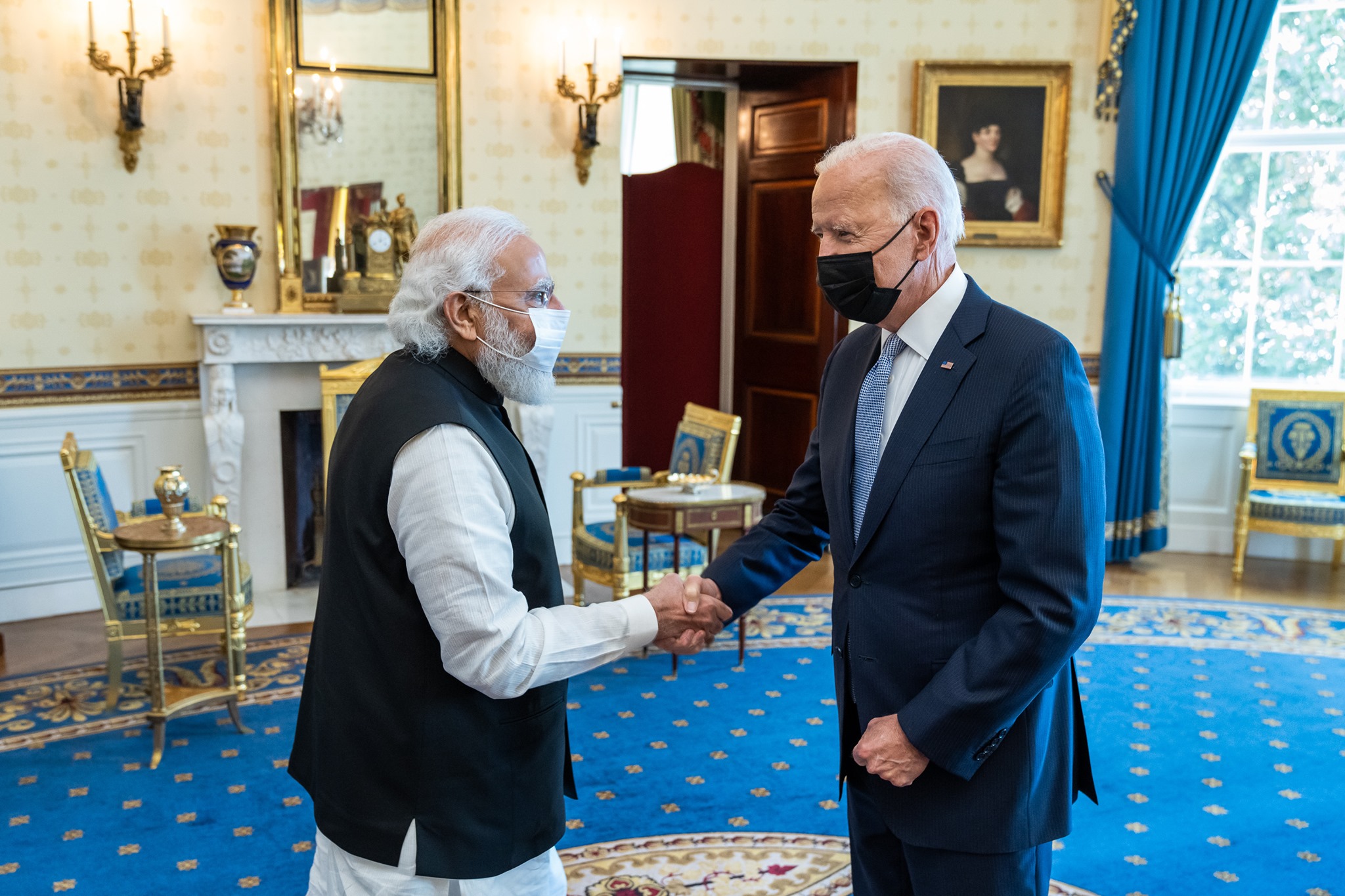


The recent developments in Afghanistan present a pressing question to the Indian establishment: How far, if we do, can we trust the US administration?
There has been a drastic shift of stance from Trump to Biden in a fashion that looks like it predicates on the “woke” ideology of the constituents that elected the key players. Yes, Trump had announced his intention to pull out of Afghanistan. He covered so many things – in words or in action. The Biden administration has bulldozed all of them. From allowing illegal immigrants to simply walk up north and into the USA unvaccinated – at a time when the world is reeling from Covid19, to shutting down the Keystone XL Project. It is only in the case of Afghanistan that the Biden administration has chosen to place the onus of the decision on Donald Trump, which appears quite hollow.
Besides, Trump had reversed his decision of shutting down Bagram – the largest US airbase in central Asia – a source of immense strategic value. We can take a guess that Trump had no intention of leaving all that military hardware to the Taliban, or pull out in such a chaotic fashion that resulted in bomb blasts and deaths, the most symbolic among them being aircrafts taking off as hapless Afghans fell off them. The underlying idea of the Trump administration was a USA with reduced global footprint but with a decisive primacy – the likes of which was evident in the killing of Al Bagdadi, or breaking of ice between Israel and KSA/UAE. The underlying idea of Biden administration seems to make USA internationally appear as incompetent and untrustworthy.
The USA has been faltering for some time now, but Afghanistan 2021 could well serve as the most important marker by its ‘allies’ – strategic or otherwise. This author does not look favourably at the idea of a ‘global policeman’, but at the same time is acutely aware of the fact that someone had to be there to act as the overarching umbrella to those non-nuclear nations that were a part of its circle of influence in order to prevent a nuclear proliferation, and appreciates the message to them, that the USA is ready to take a nuclear hit on its cities to keep them safe.
The question that follows now after Afghanistan 2021 is, ‘What would thus be the fate of Taiwan or the Baltic States – nations that fall under Chinese or Russian ambit?’ The current White House administration has clearly demonstrated its lack of stomach to follow through with the tasks at hand – savoury or otherwise. And Chinese propaganda has latched on to this episode to arm-twist Taiwan into acquiescence.
Let us consider what happened with NATO. Donald Trump was rough on NATO, true. His speech and behaviour had left a bad taste in the mouth of many. But at the end of all of that, he had ensured that member states paid up proportionately for the upkeep and maintenance of NATO, and that, as a result, had moved some way along improving the battle readiness of the European members of NATO in a manner that was seldom witnessed before. Biden on the other hand did not consult, or consider the participating nations’ opinion about Afghanistan. It was a unilateral decision that preceded the Bagram evacuation, endangering troops from 36 countries and resulted in an embarrassing chaos. And as is the nature of any country or coalition that looks at itself as an equal partner, there are emerging thoughts along the European corridor that it is perhaps time they decisively debated the matter of ‘strategic autonomy’ once and for all.
The stakes of New Delhi haven’t changed in nature; they have only amplified over the years. Earlier India had a belligerent Pakistan, and China; today India has a belligerent Sino-Pak alliance. When the USA invaded Afghanistan following 9/11, it was quickly clear to the US establishment that the Taliban had crossed the border and into Pakistan. The logical step was to put boots on ground in Pakistan. But that meant developing India as a strategic partner.
According to political analyst Victor Hanson, this was quickly put under the carpet when the same was communicated to the administration. Things haven’t changed for the better since then; they have only deteriorated. USA has time and again demonstrated its queasiness to tackle the only one thing that matters to India: Rawalpindi-ISI-Deobandi nexus. And now, with China on the rise, they don’t even look bothered about appearances. The administration, especially post-Trump, are being manned by people’s representatives that have neither the acumen nor the will to comprehend the domestic or international imperatives that propelled USA to be a superpower and later the leader of a unipolar world. Any nation in the eastern hemisphere that is wary of China – whether Vietnam or India – should extremely carefully evaluate their options thus.
Back in New Delhi, one would expect the External Affairs to think ahead of the curve. But given their past performances, that is a big ask.
(Arindam Mukherjee is a Learning & Development consultant and an author who likes to dabble in Eurasian geopolitics during his spare time. He lives in Calcutta)
[Disclaimer: The opinions, beliefs, and views expressed by various authors and forum participants on this website are personal.]